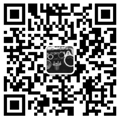A planetary carrier is a device used for car walking, which can easily tow a car to another location. It adopts good planetary gear technology, which can provide powerful torque transmission and traction. Using a planetary carrier, you can easily tow and rescue other cars, whether on rugged mountain roads or in muddy areas. It can also be used for commercial purposes, such as transporting heavy goods or moving large equipment.
The planetary carrier provides excellent load-bearing capacity and stability. It is made of high-strength steel internally, allowing it to withstand weight and pressure. At the same time, the planetary carrier also adopts anti slip design to ensure traction stability in complex terrain and avoid any dangerous situations.
The planetary carrier has the characteristic of simple operation. Its design is user-friendly and equipped with convenient joysticks and buttons. You only need to press the button to start the traction mechanism and control the traction speed and direction. In addition, the planetary carrier is equipped with humanized seats and control console, providing users with a more comfortable control experience.
The planetary carrier has the characteristics of environmental protection and energy conservation. It adopts a good power system, including electric and solar systems, which can save energy during the traction process and reduce the impact on the environment. In addition, it is equipped with a braking system to ensure that traction can be stopped at any time and kept safe.
In short, the planetary carrier is a powerful, easy to operate, environmentally friendly and energy-saving driving assistance device. It is widely used in the fields of towing and rescue vehicles, as well as in commercial transportation and equipment movement. Whether on rugged mountain roads or in muddy areas, planetary racks can provide excellent traction and stability. In the future, we believe that planetary carriers will further develop and bring more convenience and benefits to the automotive industry.

 Disclaimers
Disclaimers
